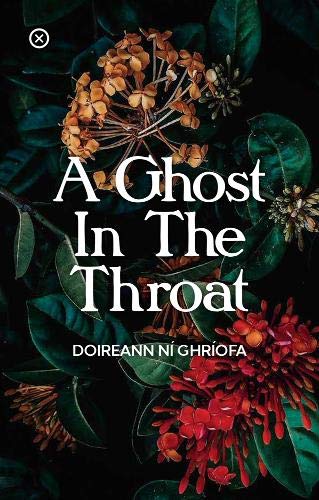It would probably be more apposite to file this stunning work of autofiction under ‘Girls for God’ as its central endeavour constitutes nothing less than an act of literary resurrection.

The narrator (who seems not at all unlike Doireann ni Ghriofa herself) is on a journey of self discovery. Determined to pursue a career in medicine, she finds herself profoundly unsuited to the work and following a crisis that results in a traumatic personal breakdown she gets married, becomes a teacher and starts a family. Being a mother to children – the climactic state of being pregnant and giving birth to children – proves to be the deepest source of spiritual sustenance and self-realisation, as well as an increasingly destructive addiction to self-relinquishment, to the immoderate sacrificing of her own thoughts, desires and ambitions to the needs of others.
The narrator finds the idea that she is a writer actively threatening. This was never what she planned for herself. She proceeds with stealth. Focusing on her dissatisfaction with the extant translations of a work that has always been of central importance to her thinking about the act of writing, she begins to investigate the life and history of Eibhlinn Dubh Ni Chonaill, the composer of the eighteenth century epic poem The Keen for Art O Laoghaire. The Caoineadh is a work that holds key significance in Ireland’s school curriculum and literary canon, yet its author – Eibhlinn herself – has always had her identity subsumed in that of her famous nephew Daniel O’Connell, who fought for the emancipation of Catholics in Ireland and was finally allowed to take up his seat in the Westminster parliament in 1829.
Eibhlinn, our narrator discovers, has been rendered more or less invisible by the male historians who painstakingly charted Daniel’s life and works. Yet still she is everywhere, the ghost that haunts, her love-song for a murdered husband an insistent, life-affirming heartbeat that comes increasingly to possess and obsess her. As she drives across rural Ireland searching for traces of Eibhlinn, however meagre, our narrator begins to work on her own translation of the Caoineadh, an act that will lay her own ghosts to rest at last and offer her a new assurance in her poetic vocation.
Doireann Ni Ghriofa is a prizewinning poet – A Ghost in the Throat is her first work of prose fiction – and poetry’s rhythms and recursive themes, both her own and Eibhlinn’s, inform every line of this original, tactile, intelligent and fiercely compelling work. Part detective story, part memoir, part treatise on the poetic life, A Ghost in the Throat interrogates the concepts of self-sacrifice and longing from a female perspective, offering insights and revelations that are both clear-eyed and merciless, passages that will move you to tears. This book, like a benevolent ghost, will return to haunt you. The work closes with Ni Ghriofa’s full translation of the Caoineadh in parallel text with Eiblinn’s original.
You can (and please, please do) watch an interview with Doireann Ni Ghriofa here. She is in conversation with the writer Megan Nolan, whose own debut novel Acts of Desperation is out in March.